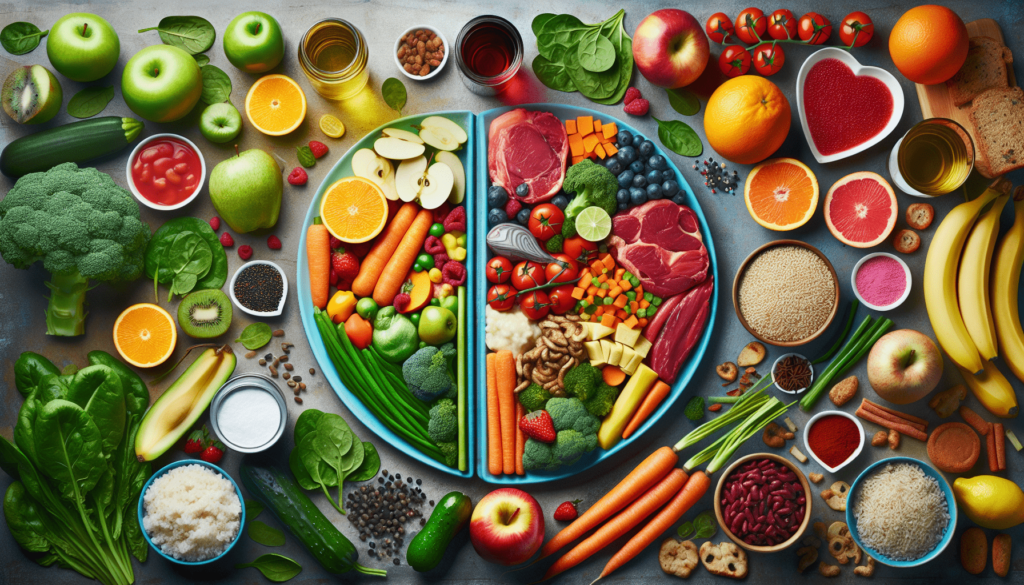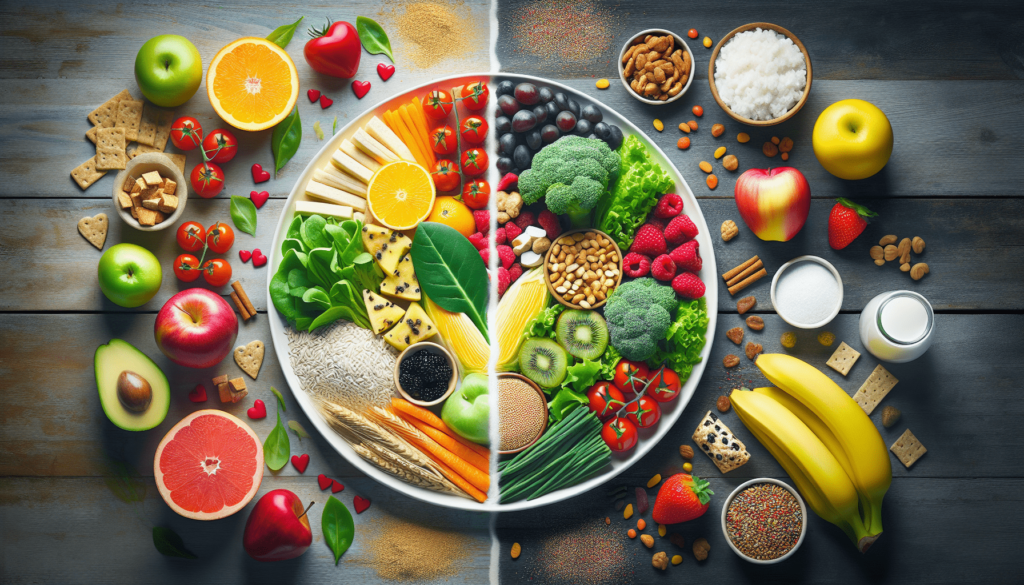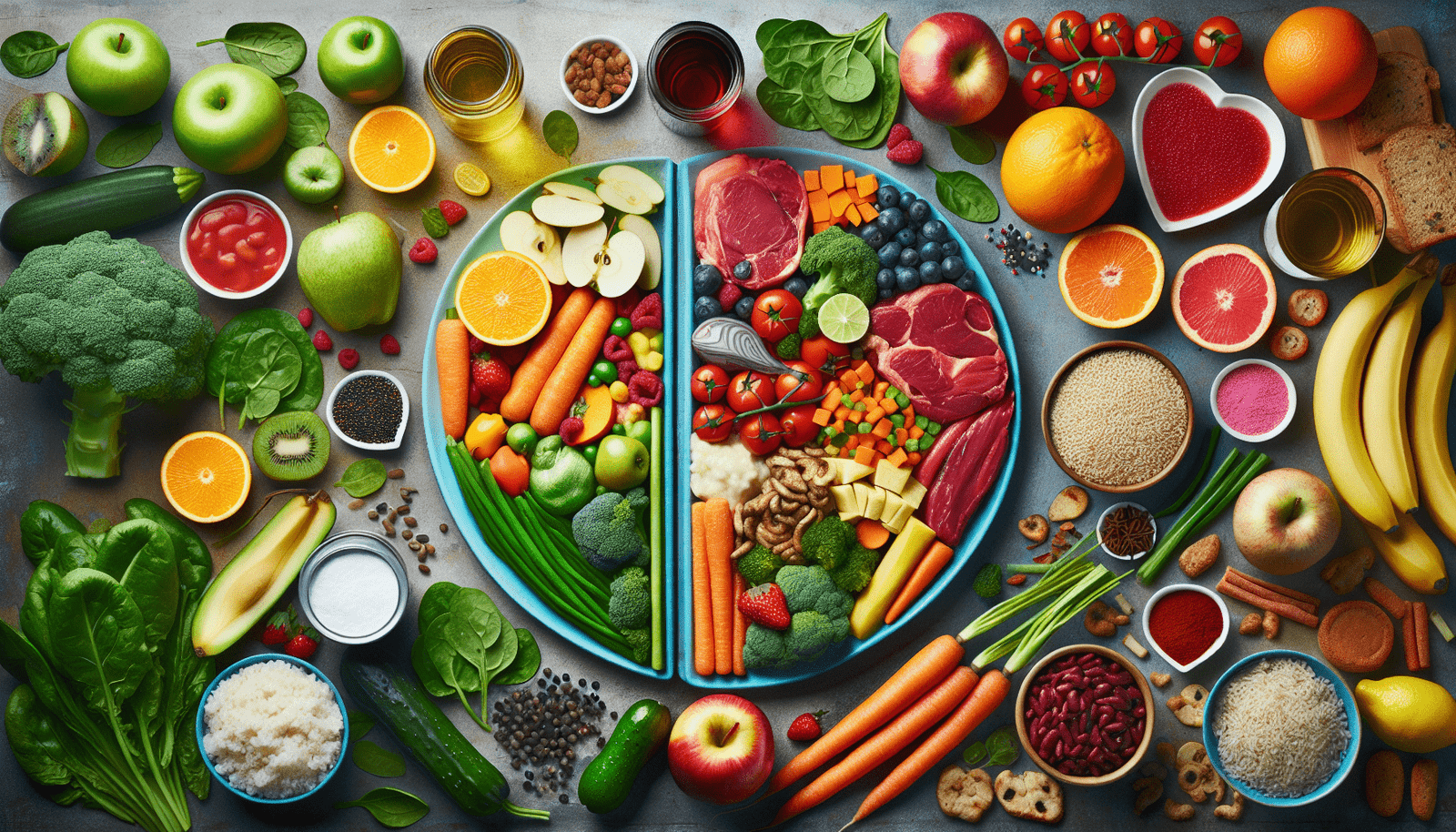Welcome to your journey to a healthier heart! In this article, we will explore the foods you should embrace and avoid in order to maintain a strong and happy heart. By making simple changes to your diet, you can improve your heart health and overall well-being. Let’s dive in and discover the power of food in promoting a healthy heart!
Journey To A Healthier Heart: Foods To Embrace And Avoid
Have you ever wondered how you can improve the health of your heart through your diet? With so much conflicting information out there, it can be overwhelming to know what foods are best for your heart health. In this article, we will guide you on a journey to a healthier heart by highlighting foods you should embrace and avoid in your diet.

Embrace These Heart Healthy Foods
When it comes to nurturing your heart health, incorporating certain foods into your diet can make a significant difference. These heart-healthy foods are packed with essential nutrients that can help lower cholesterol, reduce inflammation, and improve overall heart function.
Fatty Fish
Fatty fish, such as salmon, mackerel, and sardines, are excellent sources of omega-3 fatty acids. These healthy fats have been shown to lower the risk of heart disease, reduce inflammation, and improve blood vessel function. Aim to include fatty fish in your diet at least twice a week to reap the benefits for your heart.
Nuts and Seeds
Almonds, walnuts, flaxseeds, and chia seeds are rich in heart-healthy nutrients like monounsaturated fats, omega-3 fatty acids, fiber, and antioxidants. Snacking on a handful of nuts or seeds can help lower cholesterol levels, reduce inflammation, and support heart health. Just be mindful of portion sizes, as nuts and seeds are calorie-dense.
Whole Grains
Whole grains, such as oats, brown rice, quinoa, and whole wheat, are excellent sources of fiber, vitamins, and minerals that are beneficial for heart health. Consuming whole grains regularly can help lower cholesterol levels, improve blood sugar control, and reduce the risk of heart disease. Try to make half of your grain intake whole grains for optimal heart health.
Fruits and Vegetables
Colorful fruits and vegetables are packed with heart-healthy nutrients like vitamins, minerals, fiber, and antioxidants. Incorporating a variety of fruits and vegetables into your diet can help lower blood pressure, reduce inflammation, and protect against heart disease. Aim to fill half your plate with fruits and vegetables at every meal for maximum heart health benefits.
Olive Oil
Olive oil is a staple of the heart-healthy Mediterranean diet and is rich in monounsaturated fats and antioxidants. Substituting saturated fats like butter with olive oil can help lower cholesterol levels, reduce inflammation, and improve heart health. Use olive oil as your primary cooking oil and salad dressing for a heart-healthy boost.
Foods To Limit Or Avoid
While embracing heart-healthy foods is essential for optimal heart health, it is also crucial to be mindful of foods that can negatively impact your heart health. Certain foods can contribute to high cholesterol, inflammation, and other risk factors for heart disease. Here are some foods to limit or avoid for a healthier heart.
Processed Meats
Processed meats like bacon, sausage, hot dogs, and deli meats are high in saturated fats, cholesterol, and sodium. Consuming these meats regularly can raise cholesterol levels, increase inflammation, and elevate the risk of heart disease. Opt for lean protein sources like poultry, fish, tofu, or legumes instead.
Sugary Drinks
Sugar-sweetened beverages like soda, energy drinks, sweet tea, and fruit juices are high in added sugars and empty calories. Drinking sugary beverages regularly can contribute to weight gain, high blood sugar, and increased risk of heart disease. Choose water, unsweetened tea, or sparkling water as healthier alternatives for your heart.
Trans Fats
Trans fats are artificial fats found in partially hydrogenated oils used in processed foods like baked goods, fried foods, and snacks. Consuming trans fats can raise bad cholesterol levels, increase inflammation, and raise the risk of heart disease. Check food labels and opt for foods that are trans fat-free for better heart health.
Excess Salt
Consuming too much salt can lead to high blood pressure, which is a risk factor for heart disease. Limiting your intake of salt and avoiding processed foods high in sodium can help lower blood pressure and protect your heart. Use herbs, spices, and lemon juice to season your foods instead of salt for a heart-healthy alternative.
Saturated Fats
Saturated fats, found in red meat, full-fat dairy products, and palm oil, can raise bad cholesterol levels and increase the risk of heart disease. Limiting your intake of saturated fats and opting for lean protein sources, low-fat dairy, and heart-healthy oils can help improve your heart health. Choose lean cuts of meat, low-fat dairy products, and oils like olive oil or avocado oil for a healthier heart.

Summary
Incorporating heart-healthy foods like fatty fish, nuts and seeds, whole grains, fruits and vegetables, and olive oil into your diet can help improve your heart health and reduce the risk of heart disease. On the other hand, limiting or avoiding processed meats, sugary drinks, trans fats, excess salt, and saturated fats can protect your heart health and lower the risk of heart disease. By making mindful food choices and embracing a balanced diet, you can embark on a journey to a healthier heart and a longer, more vibrant life. Remember, small changes can lead to significant benefits for your heart health in the long run. So, start making healthier choices today for a happier heart tomorrow.

